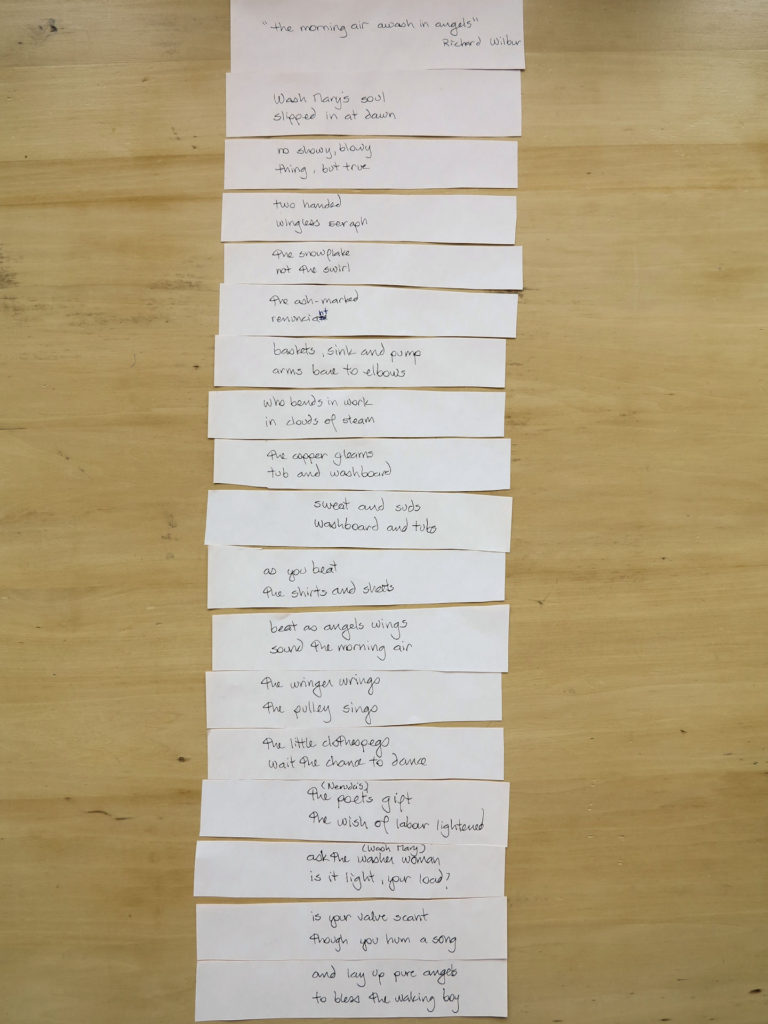Remembering Wash Mary ‘Mary came to wash for Mother every Monday.’ Emily Carr ‘Outside the open window The morning air is all awash with angels.’ Richard Wilbur Wash Mary’s soul slips in at dawn no showy, blowy thing but true two-handed wingless seraph (the snowflake not the swirl the ash-marked renunciant of the world’s vain glories) baskets, sink and pump arms bare to elbows she bends in work in clouds of steam the copper gleams tub and washboard sweat and suds washboard and tub and she beats the shirts and sheets beats as angel’s wings sound the morning air the wringer wrings the pulley sings the little clothespegs wait the chance to dance Neruda’s proffered gift the wish of labour lightened ask the woman is it light, your load is your value scant though you sing a hymn and set out pure angels to bless the waking bard
Richard Wilbur, former poet laureate of the United States, wrote the fabulously titled ‘Love Calls Us to the Things of This World’, evoking the angels on the clothesline. But what of the ‘rosy hands in rising steam’? What of Emily Carr’s ‘Wash Mary’? Did she, sounding the pulley, think of angels? What of the wringer and washboard, angel killers? Pablo Neruda praised ironing as poetry. The disembodied ‘hands are creating the world’ in the ‘skirmishings of the laundries’. Neruda hoped his gift of poetry would lighten the load of those ‘shuttered hearts’, labouring unsung. Did he ever ask?
This draft of a poem for the washer woman was made of couplets that arose in no particular order, then were cut up and suitably arranged – for now.
